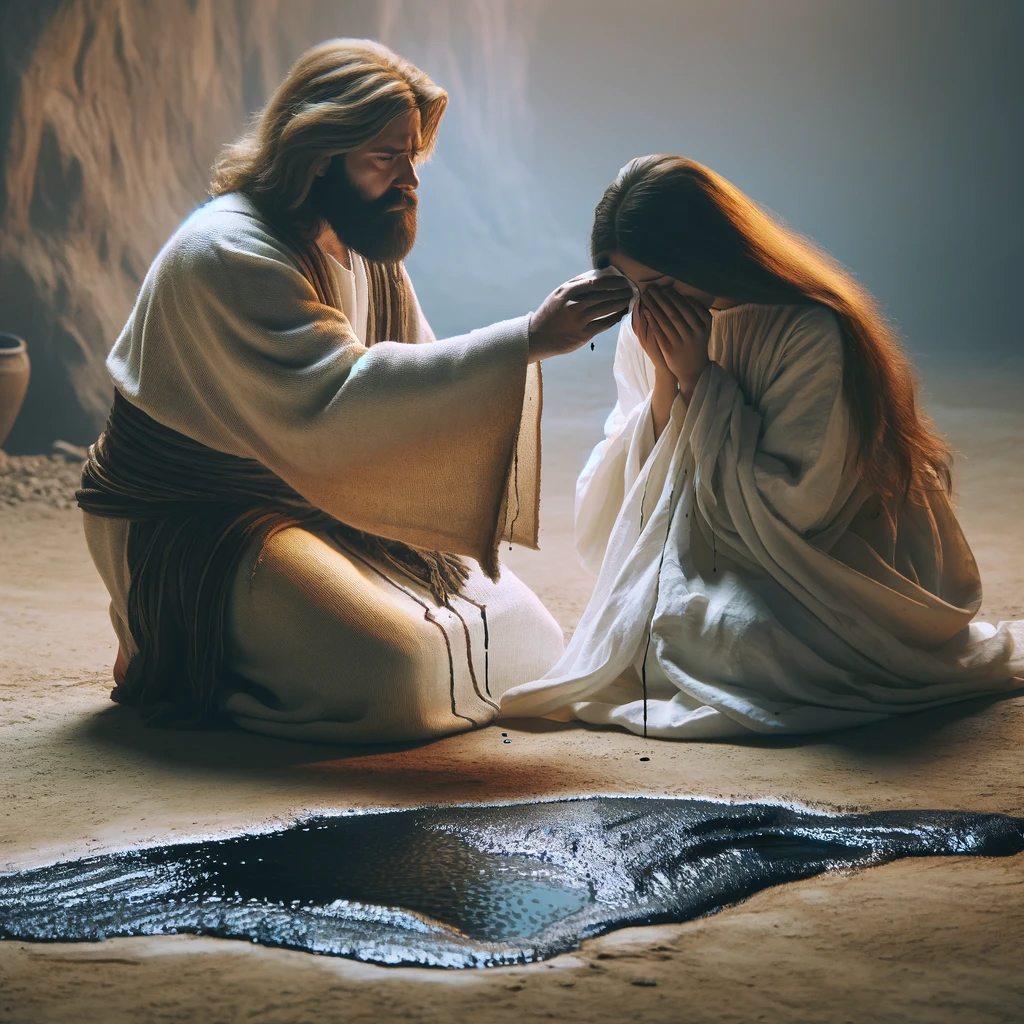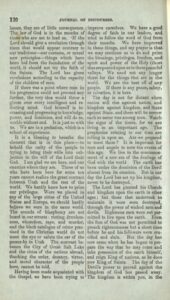There is a lot of misunderstanding regarding millennial government and the role Jesus Christ says He will play in world government after his 2nd Coming. I believe much of that confusion comes from our regular reference to Jesus Christ as King, especially during the millennium, as well as several verses of scripture.
For example:
For the Lord shall be in their midst, and his glory shall be upon them, and he will be their king and their lawgiver.
I’d like to provide some clarification on this.
True Theocracy
First of all, notice how the Lord says He is already our lawgiver:
Wherefore, hear my voice and follow me, and you shall be a free people, and ye shall have no laws but my laws when I come, for I am your lawgiver, and what can stay my hand?
(D&C 38:22)
The Lord has claimed credit for the establishment of the US Constitution, and He claims that He is our lawgiver. So to say that “someday in the future” He will be our lawgiver and that He is going to establish some new structure of government is unfounded. As you read through this article, you will see that God’s “law” (notice it says law, and not a “new government”) can and will be implemented more fully, but that our system of republican government is the ideal environment for the establishment of His law.
We have a pretty limited and corrupted view of what the true role of a king is and what Jesus Christ means by the “Kingdom of God”, particularly the stone Daniel saw cut out of the mountain without hands. Perhaps our perspective is shaped too much by our understanding of medieval and other worldly kingdoms and not enough by the story of the ancient Israelites.
I believe the most instructional story in the scriptures on this matter is the story of Samuel (the prophet) versus the elders of Israel who want a king in 1 Samuel 8. (Remember that the Israelites began practicing representative government in Exodus 18 and the people had a republican government until they asked for a king in 1 Samuel 8-11.)
1 And it came to pass, when Samuel was old, that he made his sons judges over Israel.
2 Now the name of his firstborn was Joel; and the name of his second, Abiah: they were judges in Beer-sheba.
3 And his sons walked not in his ways, but turned aside after lucre, and took bribes, and perverted judgment.
4 Then all the elders of Israel gathered themselves together, and came to Samuel unto Ramah,
5 And said unto him, Behold, thou art old, and thy sons walk not in thy ways: now make us a king to judge us like all the nations.
6 ¶ But the thing displeased Samuel, when they said, Give us a king to judge us. And Samuel prayed unto the Lord.
7 And the Lord said unto Samuel, Hearken unto the voice of the people in all that they say unto thee: for they have not rejected thee, but they have rejected me, that I should not reign over them.
8 According to all the works which they have done since the day that I brought them up out of Egypt even unto this day, wherewith they have forsaken me, and served other gods, so do they also unto thee.
9 Now therefore hearken unto their voice: howbeit yet protest solemnly unto them, and shew them the manner of the king that shall reign over them.
10 And Samuel told all the words of the Lord unto the people that asked of him a king.
Here, we learn that Christ reigns as king when the people are free sovereigns and live under representative government with a system of righteous judges. It’s when people are free and adopt laws that are pleasing to God that their government may be considered a true theocracy. More on this story later in this post.
1 Samuel 8-12 reminds me of Jacob 4, one of the passages that teaches that God grants according to our desires, even if it is against His will:
14 …God hath taken away his plainness from them, and delivered unto them many things which they cannot understand, because they desired it. And because they desired it God hath done it, that they may stumble.
Think about it—If our goal is really to become like God, and his exaltation is made possible by his perfect self-regulation, then wouldn’t it make sense that self-government is God’s preferred form of government? Isn’t He trying to teach us to govern ourselves according to eternal law?
Man’s theocracy is a system of force through an institutional combination between a specific religion and state power. True theocracy is a system of freedom protected by an institutional separation between church and state (there must be an institutional separation between specific churches and government power, but there must be an influential relationship between religion and morals and government power in order for the political environment to be prosperous and pleasing to God).
“Well,” some protest, “what about King Mosiah in the Book of Mormon? He said the best form of government is when righteous men are chosen as kings.”
Let’s dive into that.
Kings and Judges in America
Check out 1 Samuel 12:12-19.
12 And when ye saw that Nahash the king of the children of Ammon came against you, ye said unto me, Nay; but a king shall reign over us: when the LORD your God was your king.
13 Now therefore behold the king whom ye have chosen, and whom ye have desired! and, behold, the LORD hath set a king over you.
14 If ye will fear the LORD, and serve him, and obey his voice, and not rebel against the commandment of the LORD, then shall both ye and also the king that reigneth over you continue following the LORD your God:
15 But if ye will not obey the voice of the LORD, but rebel against the commandment of the LORD, then shall the hand of the LORD be against you, as it was against your fathers.
16 ¶ Now therefore stand and see this great thing, which the LORD will do before your eyes.
17 Is it not wheat harvest to day? I will call unto the LORD, and he shall send thunder and rain; that ye may perceive and see that your wickedness is great, which ye have done in the sight of the LORD, in asking you a king.
18 So Samuel called unto the LORD; and the LORD sent thunder and rain that day: and all the people greatly feared the LORD and Samuel.
19 And all the people said unto Samuel, Pray for thy servants unto the LORD thy God, that we die not: for we have added unto all our sins this evil, to ask us a king.
I find it interesting how Samuel condemns the people for choosing righteous monarchy over their system of judges. The people asked the prophet to choose their king. I can’t think of a more safe person to have choose a righteous king. This story reveals God’s fundamental distain for monarchial government, regardless of how good an individual king might be. At first glance, this seems to clash with what some people interpret in the Book of Mormon as an endorsement of monarchy.
In the early chapters of the Book of Mormon, Nephi, son of Lehi, is established as king over his people (2 Nephi 6:2). From Nephi until King Mosiah, the people of Nephi live under a king. In Mosiah 29, King Mosiah establishes a free government among the Nephites, but the way he speaks makes it sound like they are almost settling for a system of judges, as if it’s a lesser form of government.
8 Nevertheless, if it were possible that ye could always have just men to be your kings it would be well for you to have a king.
13 Therefore, if it were possible that you could have just men to be your kings, who would establish the laws of God, and judge this people according to his commandments, yea, if ye could have men for your kings who would do even as my father Benjamin did for this people—I say unto you, if this could always be the case then it would be expedient that ye should always have kings to rule over you.
I couldn’t wrap my head around this for many years. However, two important points recently occurred to me.
- These people are living the Law of Moses where their primary objective is simply obedience to law that has been given to them. The lesser principle is mere obedience while the higher and more spiritual principle is total self-government. So let’s be careful applying the idea of “kings are the best form of government” to our day when this was taught to a people living the Law of Moses.
- The definition of expedience. Websters 1828 dictionary provides this definition:
tending to promote the object proposed; fit or suitable for the purpose; proper under the circumstances
I find the following definition from the Cambridge dictionary insightful:
expedient (adj.): helpful or useful in a particular situation, but sometimes not morally acceptable
I would contend that under the law of Moses, in an era where the people had to be told everything they should do and have things explicitly spelt out in nearly every matter, yes—a righteous king would be the ideal. But in an era of pre-millennial saints striving to live the higher law of self-government, this form of government would be a handicap, a safe and comfortable alternative to the risky freedoms associated with moral self-discipline and popular sovereignty.
Theocracy in America
I believe God intended for America to be the beginning of Christ’s kingdom, or republican theocracy.
11 And this land shall be a land of liberty unto the Gentiles, and there shall be no kings upon the land, who shall raise up unto the Gentiles….
14 For he that raiseth up a king against me shall perish, for I, the Lord, the king of heaven, will be their king, and I will be a light unto them forever, that hear my words.
This scripture tells us that even before Christ returns, He will be considered the king of our free people in America, so long as He is worshipped and our law is commendable to Him.
This may not be a very popular perspective. It’s possible that a majority of America doesn’t want to be that closely aligned with God’s spiritual and political law. But I hope to make His plan for our nation popular.
Click here to read more about Millennial Government and the pattern of Republican Theocracy.









Recent Comments